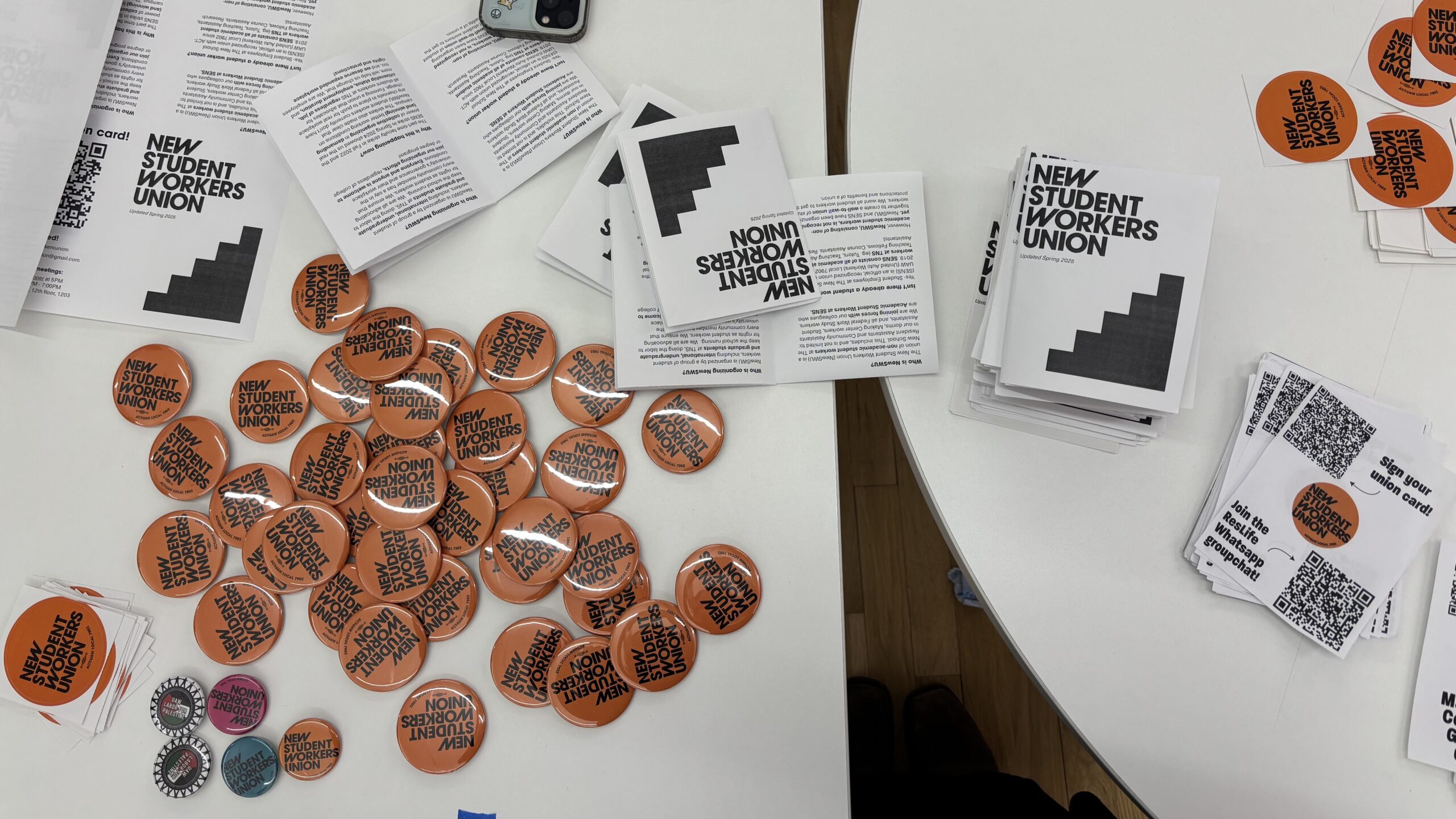With Reporting By: Colin Bedell and Shea Carmen Swan

In mid-February, social media giant Facebook made a big change. The popular website added 56 new gender options, as well as a choice of preferred gender pronouns, for its United States users.
This new addition to the website has stirred controversy. One concern among people in the LGBTQIA community is that employers and landlords check the Facebook pages of prospective applicants. According to the American Civil Liberties Union, 17 states and the District of Columbia have laws that prohibit discrimination based on gender expression or sexual orientation in the workplace, schools and housing. Some still worry that publicizing such information on social media could affect a person’s chance of getting a job or apartment.
Matthew Melucci, assistant professor in Media Studies at The New School, recognizes that listing the new gender options on Facebook “runs the risk of raising flags for those less tolerant in society.”
“We all need to do what we can to protect ourselves and our privacy as well as understanding this risk we take in being social on the web when it comes to those who discriminate,” Melucci said. “Like everything else on the web, the potential to reach and be reached is magnified by the technology.”
One’s gender can be changed on Facebook by selecting “custom.” The new gender options include Agender/Neutrois, Androgyne/Androgynous, Bigender, Cis/Cisgender, Female to Male/FTM, Gender Fluid, Gender Nonconforming/Variant, Gender Questioning, Genderqueer, Intersex, Male to Female/MTF, Neither, Non-binary, Other, Pangender, Trans/Transgender, Transsexual and Two-spirit. For preferred gender pronouns, Facebook now gives the options of him/his, she/her and they/them.
“While to many this change may not mean much, for those it affects it means a great deal,” Will Hodges, Facebook’s spokesperson, told Slate in February.
“All too often transgender people like myself and other gender nonconforming people are given this binary option, do you want to be male or female? What is your gender?” Brielle Harrison, a software engineer for Facebook who helped create the update and is currently transitioning from male to female, told The Guardian. “And it’s kind of disheartening because none of those let us tell others who we really are.”
Vivian Carlson, a Photography major at Parsons, identifies as neutrois, which is a non-binary gender identity. Carlson also leans more toward the female side of the gender spectrum and prefers the pronouns they and them. Before this change Carlson said, “[Facebook] wouldn’t even give you the option of not choosing a gender, which was fucking stupid.” Carlson said that they used HTML code to get rid of the binary gender on their page. “There’s a lot more options now, I’m surprised they included so many options, honestly.”
While Carlson is not Facebook friends with any of their employers, Carlson admits to having a fear of their bosses finding out about their gender expression, since one of them is homophobic. In New York, discrimination based on sexual orientation is legally prohibited in the workplace, while gender expression or identification is not protected. Carlson explained that as long as their appearance reflects that of a woman, they cannot be fired.
However, if Carlson chooses to come to work with their breasts bound, they could potentially lose their job. “As long as I follow their dress codes, [the bosses] have no reason to fire me,” Carlson said.
Jussara Raxlen, a Gender Studies teaching fellow at The New School, attempted to change her gender expression on Facebook, but experienced a problem. Though she is cisgender, meaning she identifies with the gender she was assigned at birth, she wanted to have her gender listed as “whatever,” but Facebook’s update is not entirely customizable. Those who wish to change their gender expression can only choose from the 56 options. Instead, Raxlen chose to omit the gender section from her profile completely, which is also a new option.

“Some people might not know they can hide their gender, especially as Facebook is always changing their privacy settings,” Raxlen said. Some people were unaware of these new gender options, since Facebook did not announce it on their homepage. “After all, Facebook is a business and they might not want to offend more conservative users.”
While describing these new changes to Facebook, Raxlen mentioned Germany’s new regulation that allows indeterminate gender on official documents, such as birth register and passport. “[Germany’s new regulation] is a bigger move, as it has to do with the law and the state,” she said.
Many cisgender individuals who are allies to the LGBTQIA community have changed their gender settings as well. James Jesperson, a Lang student who prefers his/him pronouns and changed his gender on Facebook to gender-nonconforming, said, “I know people who struggle with their identity and I recognize, as a homosexual, the pain they feel in being unaccepted, misunderstood and berated for being who they are and doing what makes them happy.”
Like many others who have used the new gender options on Facebook, Jesperson changed his gender on the website because he wanted to protest the gender binary, the system by which people are classified as solely male or female.
“Facebook knows young people aren’t using it [Facebook’s service] anymore,” said a representative from Google’s marketing team, who wished not to be named for fear of losing his job. He believes that, with the current popularity of other social networks such as Twitter and Whatsapp, Facebook is worried and needed to do something to build brand love. “They want their users to say, ‘Facebook did something for me, so now I’m gonna’ use it.”
Raxlen believes that this change on Facebook will have effects on various levels of human interaction. However, she noted, “It’s too soon to see what the outcomes will be, exactly.”
The Free Press respects the preferred gender pronouns (PGPs) of subjects interviewed, and has accordingly used the PGPs they/them/theirs. Please see the editorial for more details.
Born and raised in New York City, Rafaella (Raffi) is majoring in Journalism + Design at Lang. Rafaella also enjoys fashion, writing poetry, reading for pleasure, the art of drag, and listening to pop-punk!








Leave a Reply